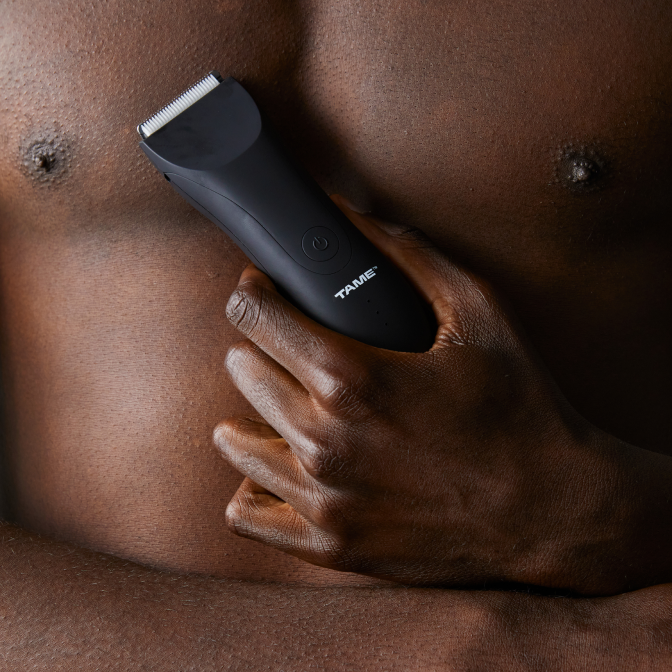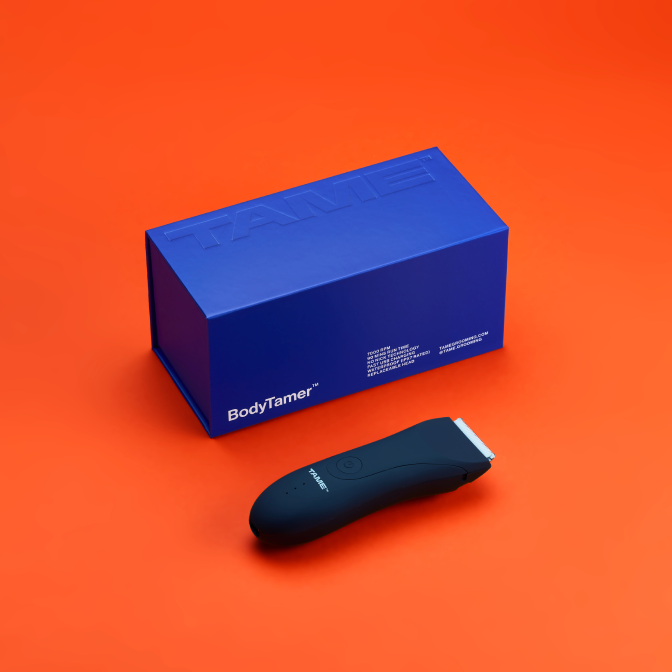Testicular cancer is one of the most common forms of cancer in people aged 15-35, with an average age of diagnosis of 33 years old. It affects over 109,000 people every year, and over 10,000 people pass away from it annually.

It’s essential for people to know how to check their testicles for lumps or any changes that could be a sign of this disease.
In this blog post, we will provide step-by-step instructions on how to perform a self-examination as well as information on other possible symptoms and when you should see a doctor.
With early detection being key, it’s important for people to understand the signs and symptoms of testicular cancer so they can take action if necessary.
Why it's important for men to know how to check themselves
Early detection is key when it comes to treating testicular cancer and being able to recognize the symptoms can make all the difference in successful treatment. It's recommended that men check themselves monthly for early detection.
That's why it's important for people to understand what they should look out for and how to perform self-examinations properly so they can take action if necessary.
Symptoms of testicular cancer
The most common symptom of testicular cancer is a lump or swelling in one of the testicles. Other possible symptoms include a feeling of heaviness in the scrotum, pain or discomfort in the testicle or scrotum, and fatigue.
It's important to note that these symptoms are not always indicative of testicular cancer, but if you experience any of them you should see a doctor right away.
How to perform a self-examination for testicular cancer
To perform a self-examination, first, you need to stand in front of a mirror and look for any swelling in the scrotum.
Then, use both hands to examine each testicle separately by gently rolling it between your fingers and thumb.
Lastly, feel around the entire area including the epididymis (the tube at the back of each testicle).
If you notice any lumps or changes, see a doctor right away.

Other signs that could indicate testicular cancer
Other signs of testicular cancer can include back pain, difficulty urinating, or changes in skin color in the scrotum. In rare cases, people may experience swelling of the lymph nodes in the abdomen or notice a buildup of fluid around the testicles.
Additionally, some people may experience nausea, vomiting, or unexplained weight loss. If you experience any of these symptoms, it is important to see a doctor right away.
The importance of early detection
Early detection is key when it comes to treating testicular cancer, as the sooner it's caught, the better the long-term outlook.
The 5-year survival rate of testicular cancer is around 95%, and while there are long-term consequences from having it, early detection can lead to more successful treatment and a better long-term prognosis.
There are over 800,000 people living with or post testicular cancer. So early detection is really important to increase your chances of surviving and enjoying life afterward.

Key takeaways
Testicular cancer is one of the most common forms of cancer in people aged 15-35, and it’s essential to know how to check yourself for any signs or symptoms.
People should be familiar with the possible symptoms of testicular cancer, such as:
- A lump or swelling in one of the testicles,
- A feeling of heaviness in the scrotum
- Pain or discomfort in the testicle or scrotum
- Fatigue
- Back pain
- Difficulty urinating
- Changes in skin color in the scrotum.
Knowing how to perform a self-examination, and doing it regularly (it is recommended to do it monthly) can help with early detection.
By being aware of these signs and taking action as soon as possible, you can ensure that any necessary treatment will be more successful in the long run.
Early detection is really important when it comes to successful treatment, so if you experience any of the warning signs mentioned in this article, be sure to see a doctor right away.
We encourage you to share this information with your friends and family members who may be at risk.

Where to go if you need more information or support
You might feel overwhelmed, scared, anxious or upset if you have been diagnosed with cancer or have symptoms – these are all normal feelings. It’s very important to have support from family, friends, health professionals or other services to help you cope with cancer.
In Australia
Healthy Male and Movember are both organizations that focus on peoples health, including testicular cancer.
Living with cancer has information about physical, emotional and practical issues during and after diagnosis and treatment.
Cancer Australia’s resource Cancer – how are you travelling? provides information to help you understand the emotional and social impact of cancer.
The Cancer Council in your state or territory can give you general information about cancer, as well as information on resources and support groups in your local area.
Call the Cancer Council Helpline from anywhere in Australia for the cost of a local call on 13 11 20.
Other cancer support organisations can also help you and your loved ones deal with the challenges of cancer.
In New Zealand
Testicular Cancer NZ has lots of informative resources, and provides 24/7 assistance, free of charge, provided by registered practitioners.


